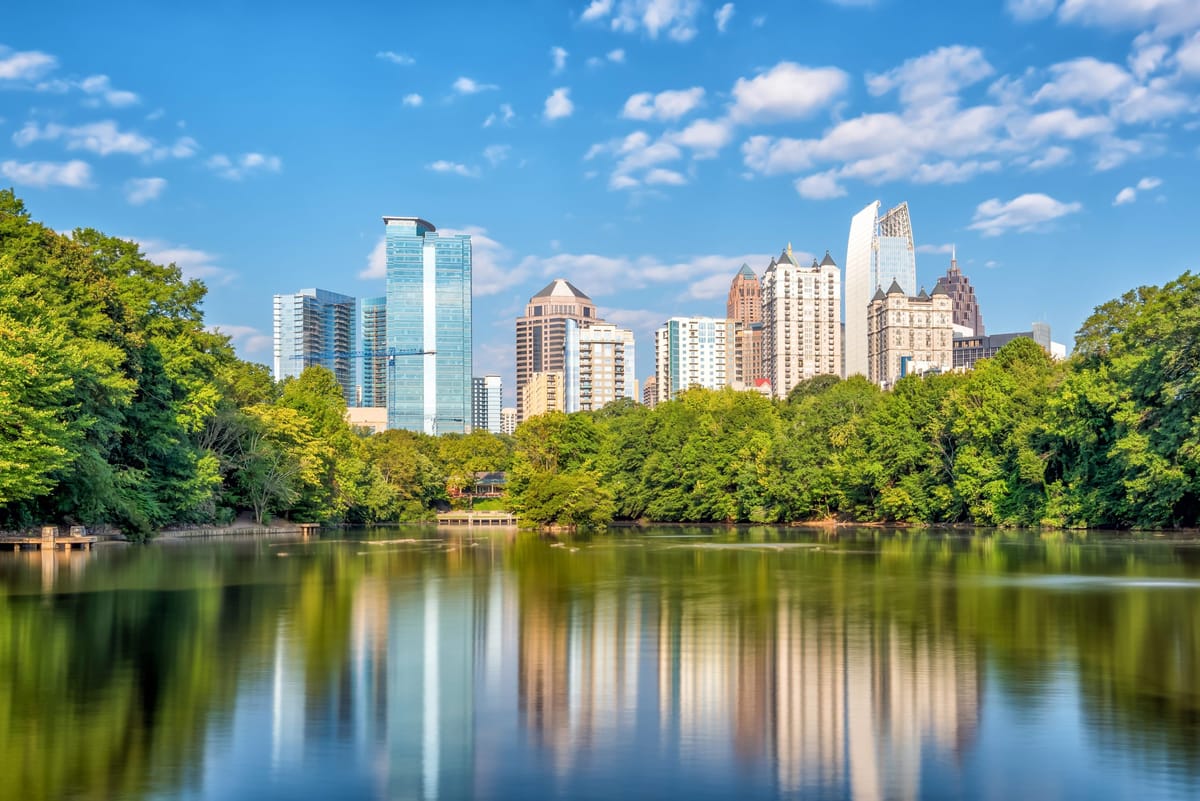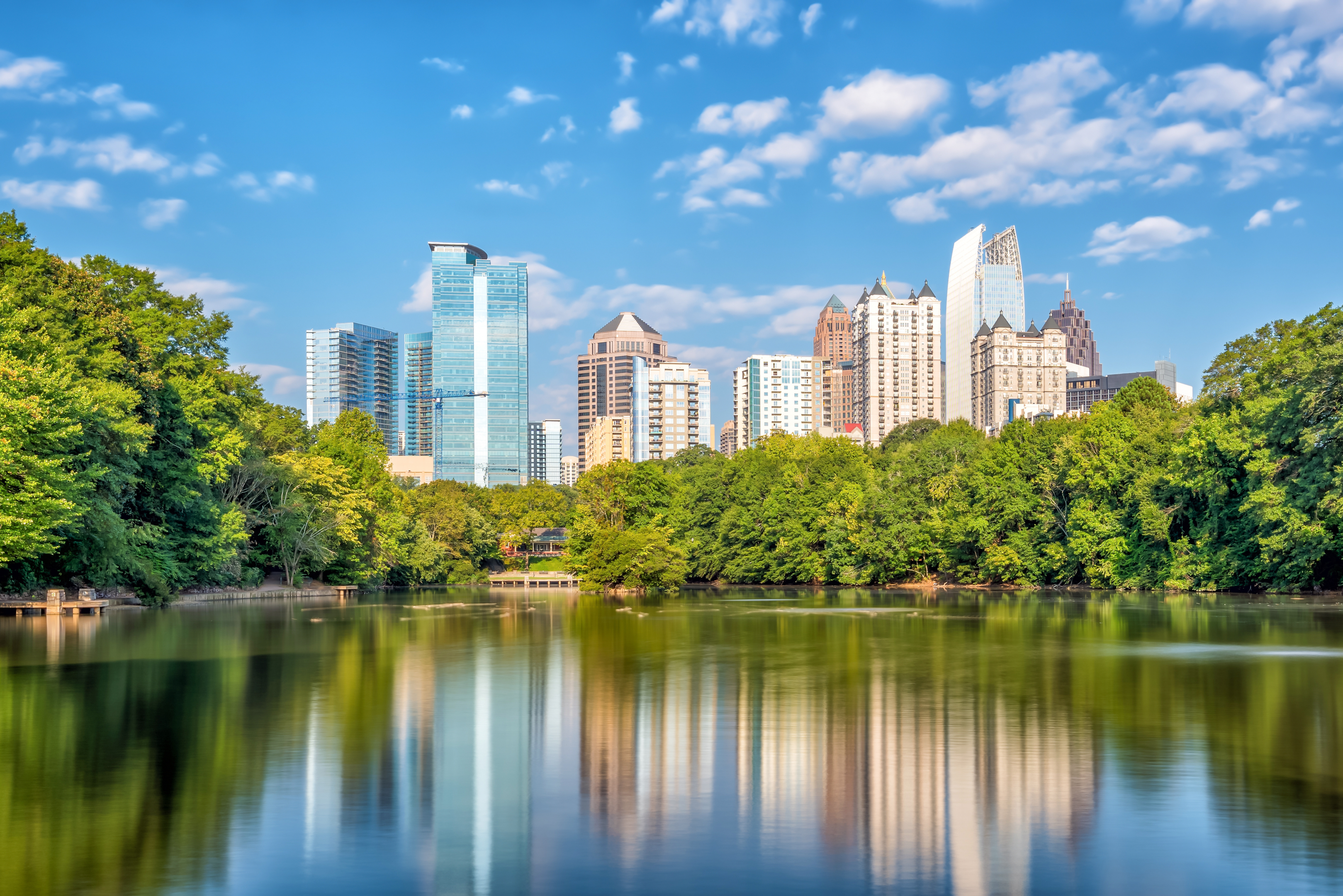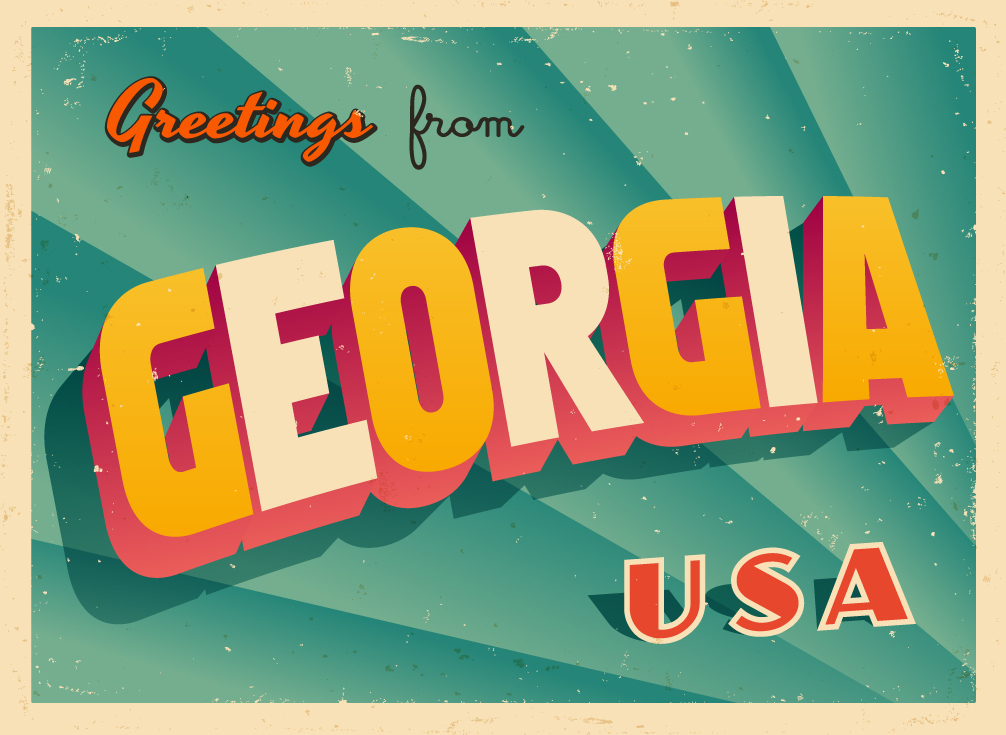Georgia Airbnb Laws: Navigating the Regulatory Landscape

For a slice of Southern hospitality, travelers flock to Georgia. Here, life can be peachy.
It’s known for its strong community sense and shared culture. It has made valuable contributions to music, literature, and sports. Whether you prefer spooky stories from centuries ago or its modern-day spirit of hospitality, Georgia has something to offer, making it one of the most popular travel destinations in the US.
Not just among guests though. Airbnb also chose the City of Atlanta as the home for one of their product dev teams. The opening of the Atlanta Tech Hub is the first step in their plan to build a long-term presence in the area.
Even with its warm culture and Airbnb’s commitment to serving its diverse community, communities have encountered issues with local laws. Here’s what vacation rental owners need to keep in mind if they want to run a successful short-term rental business in Georgia.

Do You Need a Short-term Rental License?
Whether you’ll need a business license to operate your vacation rental in the State of Georgia will depend on your city and county. That said, most require that hosts have business licenses in place.
For example, in Atlanta, the state’s capital, you’ll need to obtain a short-term rental license.
Other cities that require the same include Columbus, South Fulton, and Brookhaven.
To apply for a business license, owners of short-term rentals typically need to reach out to their city council. Most local governments also have a website where the process and requirements are explained.
For example, aspiring short-term rental owners in Atlanta need to create an online account via the City of Atlanta’s citizen gateway. After your account is all setup, you can start with the short-term rental license application. The registration details must also be added to the applicable Airbnb listing.
In Columbus, it’s a little more complicated. The short-term rental owner as well as the short-term rental agent (the person who’ll be available round the clock should there be any issues) will also need to agree to a criminal background check. If they’ve been found guilty of any felonies within the last 10 years or misdemeanors within the last five years, the application will automatically be rejected.
Some cities may also require more than one license. For example, in Woodstock, an Airbnb host must also apply for a home occupation license.
You’ll also need to keep in mind that most of the time a short-term rental permit can’t be transferred to another person. In other words, if a property was sold during the year, the new owner will need to apply again. Also, in most cities, these permits need to be renewed on an annual basis.
How Does Tax Work in the State of Georgia?
Airbnb guests will have to pay various types of taxes when they book a short-term rental in this state. This includes:
- A state sales tax that’s 4% of the listing price (inclusive of cleaning fees).
- A county/local sales tax that’s between 2% and 5% of the listing price (inclusive of cleaning fees).
- A hotel-motel tax that’s a fixed fee of $5 per night.
- Local occupancy taxes vary by city and county. It can range anything from 1% to 6% of the listing price (inclusive of cleaning fees).
The state sales tax and local sales tax apply only to reservations that are for 89 nights and shorter. The hotel-motel tax and local occupancy taxes apply only to reservations that are 30 nights and shorter.
It’s always recommended that a property owner work with a tax consultant who’s familiar with rental properties, specifically vacation rentals. There are several local laws that you’ll need to keep in mind when you pay taxes which are easy to miss or misunderstand if you don’t work with local taxes every day.
Other General Laws and Regulations to Consider
Turning a dwelling unit into an Airbnb property can have an impact on local communities, especially if properties are located in quiet residential neighborhoods. As such, there are a number of other guidelines that you’ll want to follow to ensure you have the support of community members.
-
Inform your neighbors
After you have reached out to the city planning department and received the necessary documentation, it’s also a good idea to reach out to your local neighbors. While you might not get their permission, keeping them in the loop is a gesture that they’ll appreciate. They might have concerns that you can address or valuable suggestions for how to move forward.
You can also use this as an opportunity to share with them the house rules that you’ve put in place to mitigate the potential impact it could have on local communities.
Excessive noise and parking are two of the common concerns. To address these, you can:
- Set quiet hours
- Prohibit parties or gatherings
- Restrict the number of guests that may be at your property at any given time
- Assign a dedicated parking space to guests
-
Abide by safe occupancy limits
Occupancy limits aren’t merely suggestions to prevent excessive noise and keep the peace. Local governments will have their own limits that you’ll need to plan around.
For example, in Columbus, the city limits it to two occupants per bedroom plus one extra occupant per unit.
-
Share emergency contact details with your guests
Many local jurisdictions include in their local laws guidelines for sharing emergency contact details with your guests. If you can’t find any regulations about this, it’s still best practice to do this.
Your contact list should be placed in a visible area and include the following the nearest hospital’s number as well as local emergency numbers like the fire department. For example, if your area is known for dangerous reptiles and animals, like snakes, it can also be a good idea to add a contact number of the local snake catcher.
In addition to listing these third-party numbers, it’s also crucial that your guests know how to reach you in the event of an emergency. It’s also best practice to include an alternative contact.
In fact, the city of Columbus has a rule that each unit should have an appointed agent who’ll be available to deal with any issues. This person’s name and emergency contact phone number should be posted in a readily visible place in the unit.
-
Put in place the necessary safety measures
Aside from informing your guests as to whom they should contact in case of an emergency, you’ll also need to adhere to safety guidelines. Once again, the minimum safety guidelines will vary from one city to the next.
For example, the City of South Fulton, requires that each dwelling unit has at least one exit door with direct access to the outside. All bedrooms and basements should also have a minimum of one operable window or door that leads directly to the outside.
In addition to having the necessary routes of escapes available and communicated to your guests, you should also equip your residential dwelling unit, wherever its located, with:
- A fire extinguisher
- A smoke alarm
- A carbon monoxide detector
- A first-aid kit
If your vacation rental will also be open to families with children, you’ll need extra safety measures and highlight potential hazards in your listing details and/or house rules.
-
Check your own property regularly
Many accidents can be prevented with some foresight. For example, in its rules, the City of Columbus, instructs property owners to inspect the short-term unit regularly to ensure it continues to meet building, health, and safety code provisions.
To help property owners, Airbnb shares the following hazard prevention tips:
- Identify any areas where a guest might trip or fall
- If you spot a potential hazard, remove it or mark it clearly
- Fix all exposed wires
- Lock away or remove any potentially dangerous objects like rat poison or cleaning supplies

At the end of the day, these guidelines, laws, and regulations aren’t there to make it impossible to conduct business activities. It’s created to protect the health and safety of guests and community members, while at the same time upholding the short-term rental industry’s reputation and integrity of local communities and residential neighborhoods.
Navigating the intricacies of short-term rental regulations in Georgia can be challenging. Fortunately, iGMS is here to assist hosts and property managers in staying compliant. Dive into a suite of features designed to help you adhere to local regulations, streamline your operations, and maximize your profits:
- Automated Messaging: Ensure timely and consistent communication with your guests.
- Multi-Calendar Management: Oversee all your bookings from various platforms in one place.
- Team Management Tools: Assign tasks and track progress seamlessly.
- Financial Reporting: Get a clear overview of your earnings and expenses, essential for tax reporting in Georgia.
- Smart Pricing Strategies: Optimize your rates for maximum returns while adhering to local guidelines.
- Guest Review Automation: Boost your reputation with timely and genuine reviews.
Stay ahead of the curve and ensure your rentals are in line with Georgia’s regulations.






![Your Monthly iGMS Roundup [February 2020]](/content/images/size/w600/wordpress/2020/02/igms-roundup-feb-2020-cover.png)

